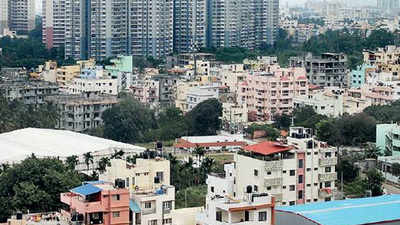The Times of India 04.03.2013
Living in a small city? Pay more!
Denizens living in small towns of Gujarat are grappling with a
disparity that is threatening to throw home finances out of sync. Owning
a house or any property in smaller townships of Gujarat is going to be
more costly than in larger urban centres. People living in less populated cities and with comparatively less economic activities will pay higher property taxes than cities like Ahmedabad or Surat.
hiked their property taxes by 30 per cent to 60 per cent. But even then,
the urban development department has not been able to resolve this
discrepancy – of smaller cities paying more taxes.
Today its a
harsh reality that smaller corporations like Junagadh has not been able
to pay their employees salaries for the last four months and tax
recovery is low as many citizens are reluctant to pay the huge taxes
imposed on them. Such is the lack of resources that Jamnagar has
proposed the highest hike in residential tax rate, while Junagadh has
proposed the highest hike in commercial property tax rates in the state.
For instance, when the carpet area based property tax formula is
applied on a self owned 1,000 square feet apartment in a posh area and
under 10 years of age, a person in Jamnagar pays Rs 4,058, while a
person in Rajkot for the same flat pays Rs 6,200 as per the old taxation
assessment formula. Surat pays the least in terms of taxes, even after
the proposed hike, one will pay Rs 2,040, while in Ahmedabad, one pays
Rs 2,734. Rajkot is the only municipal corporation in the state which
still assesses property taxes without applying the new transparent
carpet area based formula.
“There is lack of political will in
the Rajkot municipal corporation to accept the new carpet area based
property tax assessment. People do not understand that the tax
collection will become more transparent and one does not have to be at
the mercy of corrupt tax surveyors,” says a senior Rajkot municipal corporation official.
“A better tax recovery rate is key to reducing taxes. In Surat, we have
been able to achieve a 95 per cent recovery of property tax helped us
keep our rates down,” says a senior official of the Surat Municipal Coproration.
“Each corporation has to fend for itself and create its own revenue
sources. What can we do if independent boards decide the taxation for
the municipal corporation,” says a senior urban development department
official.

